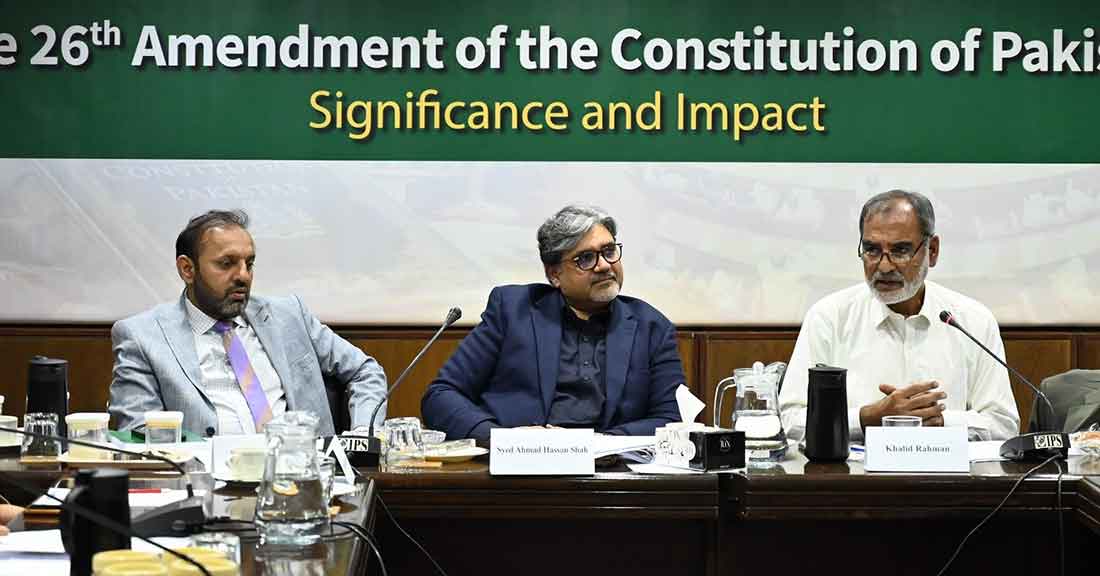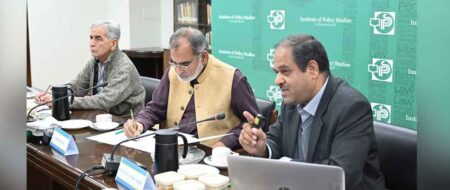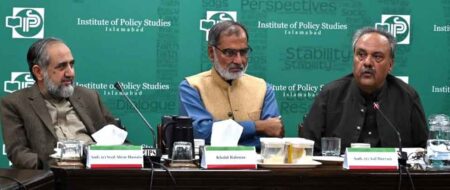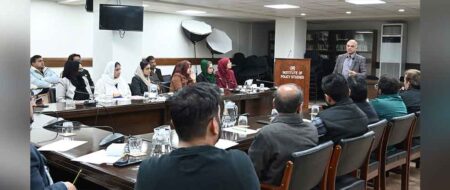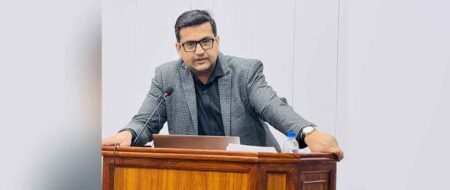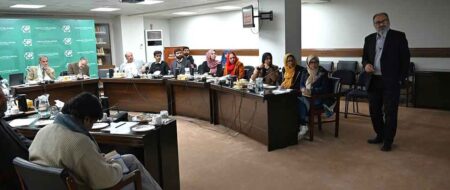‘The 26th Amendment of the Constitution of Pakistan: Significance and Impact’
Potential of 26th Amendment depends on balance, transparency, and institutional unity: Experts
The 26th Amendment to the Constitution of Pakistan has the potential to address longstanding challenges, provided that transparency, inclusivity, and institutional harmony are prioritized. While debate is inevitable in constitutional developments, and there is a critical balance between judicial independence and parliamentary oversight, it is essential that the amendment be critically evaluated to ensure the development of law, constitutional principles, and effective justice delivery.
Legal practitioners and scholars noted this during a roundtable titled ‘The 26th Amendment of the Constitution of Pakistan: Significance and Impact’ held IPS on November 27, 2024.
The session, chaired by Ahmer Bilal Soofi, advocate Supreme Court of Pakistan, was addressed by Khalid Rahman, chairman IPS, Jam Muhammad Aslam, Ministry of Law and Justice, Syed Ahmad Hassan Shah, advocate Supreme Court of Pakistan, Hafiz Ahmed Waqas, Shariah Academy, International Islamic University, Islamabad, and Dr Shahzad Iqbal Sham, research fellow, IPS.
Presenting an overview of the 26th Amendment, Jam Aslam emphasized that due deliberations preceded the passing of the 26th Amendment to introduce changes in the legislative scheme. Key provisions included the establishment of special constitutional benches in the Supreme Court and high courts and restructuring of the chief justice’s appointment process. Furthermore, the amendment introduced performance evaluations for high court judges, reduced the age limit for high court judges’ appointments to 40 years, and allowed Federal Shariat Court judges to ascend to the Supreme Court.
Ahmad Hassan highlighted the ongoing debate surrounding the amendment and emphasized that the formation of constitutional benches remains a contentious and evolving phenomenon in Pakistan’s judicial landscape. He noted that a “like-minded” judiciary can risk its reputation, compromising the quality of justice. He stressed the need for fixed constitutional benches at the Supreme Court level, with clear representation from all provinces and Islamabad. He suggested assigning cases based on their nature – criminal, corporate, or constitutional – to ensure judicial clarity and uniformity.
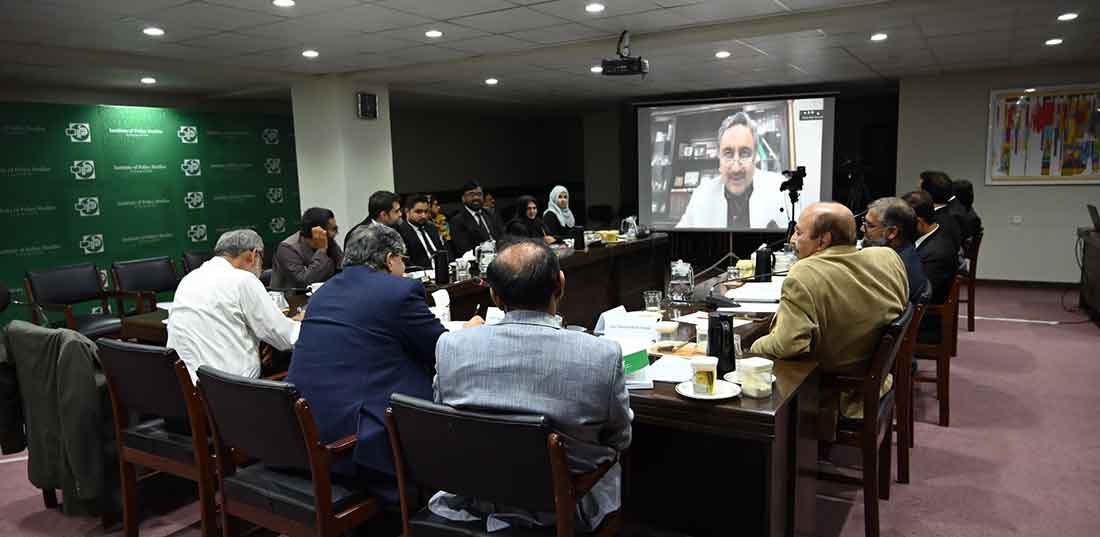
He cautioned against amendments driven by personal or political motives, urging the necessity to focus on unified case management and institutional transparency. He also warned that the growing perception of a power struggle between the judiciary and Parliament risks pushing the country toward institutional breakdown, an outcome that must be avoided through careful reform and consensus-building.
Ahmer Bilal Soofi urged stakeholders to articulate the amendment’s impact on judicial independence to international audiences. He expressed concern over the negative influence of suo moto litigation on the executive’s performance and recommended a balanced approach moving forward.
Ahmed Waqas highlighted the amendment’s significant progress in decisions related to the Federal Shariat Court, particularly concerning the Islamization of laws and the elimination of riba. He called for strengthening parliamentary forums to further this agenda.
In his concluding remarks, Khalid Rahman emphasized that debate is inevitable in constitutional developments. He cautioned against expediting the enactment process of amendments and urged that proper parliamentary debate and public consultation be prioritized. Rahman called for a comprehensive evaluation of the amendment’s positive and negative aspects to inform future legislative improvements and ensure that reforms are both effective and balanced.
